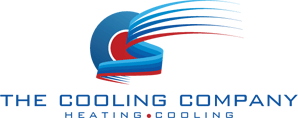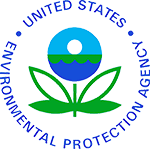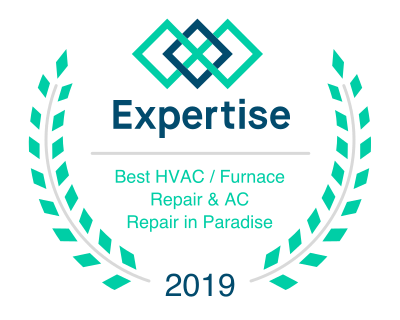Your home’s HVAC system, comprising such components as the compressor, filters, and the ductwork, works relentlessly to cater to your comfort–keeping you cool during the sweltering Las Vegas summers and warm on those chilly desert winter nights. While residential HVAC systems are designed to last a long time, with so much use and a consistent airflow to manage, it’s common for them to break down and require repairs or troubleshooting at some point. Ensuring the insulation is in good shape could prevent some issues.
When it does, make sure you hire a reputable HVAC contractor well versed in common HVAC issues to do the repair work. A qualified contractor may cost a little more but they will take necessary precautions to repair your HVAC system properly and won’t cut corners to save time or resources. Here, we provide some tips along with the do’s and don’t of residential HVAC repairs to help you avoid common mistakes home owners make.
DIY Tasks You Can Do Yourself
If you are an avid DIYer, you’re probably keen to do certain jobs yourself and save the money you would spend hiring a contractor. The good news is, there are a few maintenance and repair tasks that you can learn to perform yourself.
Change The Air Filter
The importance of changing the air filters, critical components of your HVAC system, is something we often preach on this blog, but it bears repeating. A clogged air filter leads to a surprising number of HVAC problems. It reduces AC efficiency, can cause the evaporator coils or the compressor to freeze over, the blower motor to overheat, and contributes to poor indoor air quality. As a result, it places the entire unit under stress and can lead to system failure. If you’re experiencing any of these problems, check the air filter. If it is covered in a thick layer of grey dust, it’s time to change it.
Replacing the air filter is a quick and easy job:
- Shut off the AC.
- The air filter is usually located in the air handler. Remove the cover and take out the filter.
- Insert the new one and replace the cover. Make sure it’s the right size filter. If you or your family suffer from allergies, consider buying a filter with a MERV rating higher than 11.
Clean The Condensate Drain Pan
The HVAC condensate drain line is responsible for removing moisture from the AC. When the condensate line becomes clogged with a build-up of algae, mold, or dirt, the system cannot drain moisture and water collects and stagnates in the drain pan. Here’s how to clean the condensate drain line yourself:
- Turn off the HVAC system at the thermostat and circuit breaker.
- Find the condensate pan — usually located below the indoor air handler.
- You can use a handheld wet/dry vacuum to suck up the water or mop it up with a rag.
- Clean the pan with soapy water.
- Next, go outside to the condensate drain outlet which may be located near the foundation. Again, you can use a vacuum cleaner to suck out any clog in the pipeline.
- The last step is to find the access point on the drain line which is T-shaped with a PVC cover. Remove the cover and check for dirt or debris. Pour in white vinegar, diluted hydrogen peroxide, or hot water with dishwashing soap to flush the drain line.
If you don’t feel comfortable flushing the drain line or can’t find the drain outlet, call an HVAC technician.
Dangerous Repairs You Should Never Attempt Yourself
HVAC systems are complex pieces of equipment. They require the right knowledge, training, and tools for safe installation and repairs. Trying to do repairs yourself is dangerous and can cause bigger problems to the HVAC system and also void the manufacturer’s warranty. There are certain HVAC repairs that you should NEVER attempt to do yourself. Doing the following DIY repairs in an attempt to save money can have dire consequences.
Any Electrical Work
Your HVAC unit connects to your home’s electrical wiring. Only a trained HVAC technician or an electrician should work on the wiring and electrical components of an HVAC system. For your own safety, do not touch loose connections, frayed wires, and avoid handling parts such as the fan and blower motors, start and run capacitors, or doing any work on an electric furnace.
The high voltage current that courses through the electrical system is dangerous and can result in an electric shock that can cause serious injury or death. An ill-equipped homeowner tampering with electrical work risks not only injury or death, but improper work can lead to an electrical fire. Bear in mind that should your house sustain serious fire damage or burn down completely, you may not be able to claim on your homeowner’s insurance.
Fixing the Furnace
If you have a gas furnace or air conditioners, it’s crucial to pay meticulous care to their maintenance and repair work. As many homeowners know, mishandling these machines can lead to hefty bills or even dangerous situations. The life of these machines depends on accurate maintenance and handling. Don’t try to do it yourself; it’s best to let the pros handle any hvac repair. Gas is a highly flammable substance and emits deadly carbon monoxide fumes. Carbon monoxide gas is an invisible odorless gas and highly poisonous. Unless you have a carbon monoxide detector installed in your home, you won’t notice it. Any repair, including ac repair, done incorrectly can lead to a gas leak that can be fatal. Don’t risk it!
Should escaping gas come into contact with an open flame, it can spark a fire or result in an explosion. Devastatingly, if you don’t take caution, chances are your home will burn to the ground within minutes, leaving homeowners with even more problems.
Electric and oil furnaces are a safer heating option for your homes, but they also come with hazards. Faulty wiring on an electric furnace can spark a fire. Oil furnaces are safe provided you maintain it regularly. However, if you notice black smoke creeping out of the sides of the furnace door, it could mean the furnace is not burning fuel properly. Do not open the furnace door as the pressure build-up inside can cause the door to violently blow open and injure you or lead to an explosion. If the smoke is heavy, call the fire department.
Refilling Refrigerant
Never refill refrigerant yourself. Your air conditioner’s refrigerant gas is a highly toxic chemical and dangerous to work with if you don’t know what you’re doing. It can cause skin and eye irritation and inhaling refrigerant gas can cause dizziness, nausea, and respiratory problems. It’s also illegal to handle refrigerant without a license or to let it leak into the air. That’s why this job requires a professional team who knows how to refill refrigerant gas safely. An HVAC technician also knows the correct levels of refrigerant gas required for the specific brand and size of the air conditioner.
What The HVAC Technician Should Do When Conducting Repairs
When the technician arrives, he or she may ask questions to obtain more information to help him or her to diagnose the problem before starting work. The HVAC technician should always conduct themselves in a friendly, professional manner. They understand the importance of effective communication and should include you in every stage of the process.
Explain The Scope of The Job
A good technician will discuss the problem with you and explain the steps required to fix it before starting the work. They understand that the homeowner needs to be informed, not only of the scope of the job but also the cost. If they need to order replacement parts, they should schedule a convenient time to return to complete the job.
Work Quickly, Efficiently, and Neatly
Having repairs done in your home is always disruptive. A team from a professional HVAC company understands that and will strive to work efficiently and complete the job quickly. At The Cooling Company, our team doesn’t just carry out hvac repair or ac repair, they make sure the experience is least intrusive for the homeowners.
Follow The Manufacturer’s Specifications
Every HVAC manufacturer has a specific set of guidelines when it comes to installing, maintaining, and repairing their unit. If you’re using a licensed HVAC contractor, you’ll have the assurance that a trained technician will do all these according to the manufacturer’s specifications and general HVAC industry’s best practices. Remember, preserving the life of your machines is a worthy investment.
Most manufacturers recommend a specific maintenance schedule and are rather strict about presenting uncontrovertible proof of continuous maintenance in order to exercise your rights to claim on the warranty. If regular maintenance hasn’t been done, it will void the extended warranty, causing potential issues. Some manufacturers even level up their regulations by completely cancelling the standard warranty. Your HVAC contractor should explain this to you in detail and suggest implementing a biannual maintenance plan, to ensure optimal health of your air conditioning unit, if you’re not already signed up to one.
During a repair visit, it’s a beneficial practice for the technician to carry out a quick visual inspection and check safety controls. This scan, covering areas such as the condenser unit, fan, blower motor, furnace, evaporator coils, electrical wiring and thermostat, can reveal any latent problems that may be lurking. Do not hesitate to share any concerns you might have with the technician while he or she is there, as it can save you the energy, time, and extra expense of procuring another service call should something go wrong after they have left.
Do a Quick Visual Inspection
While carrying out repairs, if the HVAC technician spots any other parts that are showing signs of wear and tear, they should replace them or order the part if it’s not in their stock. It’s just a matter of time before a worn part will fail. In the interim, it may lower the efficiency of the HVAC system or cause damage to other parts. This is where the use of air filters and heat pumps comes in, as they can help in maintaining the comfort of your temperatures.
Replace Parts That Are Failing
Once the technician has wrapped up repairing the HVAC unit, they should start up the unit to ensure it is operating properly and listen for any strange noises. They should certify that the thermostat is functioning appropriately and maintaining an accurate temperature. To conclude, the technician should walk you through the work that was carried out and patiently answer any questions you might have.
Run a System Check
Given the hard work and energy your heating and cooling system expends, HVAC repairs are unavoidable but can be greatly minimized. Keeping tabs on certain things like changing the air filter, cleaning air vents, tidying up around the outdoor unit, and scheduling professional HVAC maintenance is integral to maintaining the unit’s health. These practices can also thwart more serious damage down the line. Plus, there’s the additional advantage of saving money on costly repairs and prolonging the lifespan of the unit.
Regular HVAC Maintenance Can Prevent Major HVAC Repairs
We emphatically recommend scheduling HVAC maintenance, encompassing air conditioning units and heat pumps, at least twice a year, ideally before the changing of seasons. For instance, an AC tune-up before summer can help avoid an untimely breakdown during the sweltering heat when you most need your air conditioner! Equally, a furnace review can help identify any potentially hazardous situations like a gas leak or electrical fault.
HVAC repairs often occur unexpectedly but are best managed promptly to avoid compounding the issues. The Cooling Company repairs residential HVAC systems across various areas in the Las Vegas metropolitan area including North Las Vegas, Henderson, Paradise, and Summerlin. We’re a licensed Las Vegas HVAC contractor and adhere strictly to all mandatory city codes and manufacturer specifications. For all your HVAC needs, comfort and health, call us at (702) 567-0707.
Who To Call For HVAC Repairs in Las Vegas
HVAC repairs often happen unexpectedly but are best dealt with quickly to avoid bigger problems. The Cooling Company repairs residential HVAC systems across the Las Vegas metropolitan area including North Las Vegas, Henderson, Paradise, and Summerlin. We’re a licensed Las Vegas HVAC contractor and comply with all mandatory city codes and manufacturer specifications. For all your HVAC needs, call us at (702) 567-0707..












